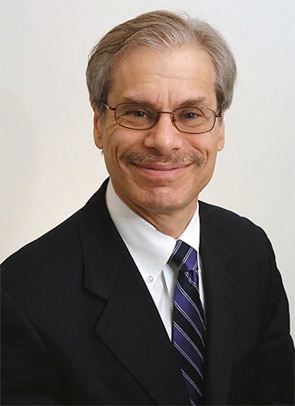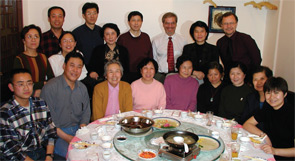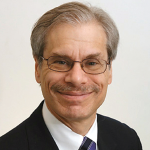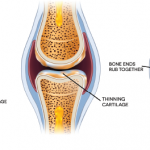
Unbeknownst to her, it was a patient who inspired David T. Felson, MD, MPH, to take up the challenge of rheumatology. In the late 1970s, Dr. Felson, then a resident at Case Western University Hospitals in Cleveland, was treating an older woman with arthritis who said to him, “I don’t know why you like helping me with my arthritis so much—you really can’t accomplish anything.”
“That statement was actually pretty insightful on her part,” he now reflects, because it pointed out one of the reasons why rheumatology was so challenging. Although rheumatologists did have some effective therapies for treating their patients, “that was before we had many of the newly available biologics,” he notes. His patient’s remark solidified his fascination for establishing relationships with patients and helping them work on their chronic illness problems.
The landscape of treatment armamentaria in rheumatic diseases has changed dramatically since that time, and Dr. Felson’s work over the past three decades has been critical to those advances. He has consistently collaborated with other disciplines—notably, epidemiologists in cardiology and oncology—to steer clinical measurement in rheumatology to new useful heights. Providing alignment of outcome measures, for example, has in turn allowed his bench research colleagues to measure the effectiveness of treatments.
Currently section chief of the clinical epidemiology research and training unit in the department of medicine at Boston Medical Center, and principal investigator of a Boston University (BU) NIH/NIAMS multidisciplinary clinical research grant, he is “one of a relatively small number of rheumatologists who are also first-class epidemiologists and clinical researchers,” says Michael C. Nevitt, PhD, MPH, a colleague and professor of epidemiology and biostatistics at the University of California San Francisco (UCSF) Medical School. “He is capable of doing large-scale population studies focusing on diseases that require clinically sophisticated and highly technical measurements to make advances in the field.”

Along the way, Dr. Felson has mentored a wide range of investigators who now contribute their insights not just to rheumatology but to other disciplines as well. Liana Fraenkel, MD, MPH, associate professor of medicine in the section of rheumatology of the department of internal medicine at Yale School of Medicine in New Haven, Conn., is one of those who benefitted from training with Dr. Felson. “His greatest contribution,” she says, “is that he formalized how to measure outcomes in rheumatoid arthritis trials, which enabled us to compare results across different trials.”
Social Sciences Background
Dr. Felson had planned on becoming a historian when he entered Harvard in 1970 as a National Merit Scholar. However, he also excelled in science, and “there weren’t any jobs in history,” he quipped during a phone interview, so he took a double major in history and biochemistry as an undergraduate. His father helped him get a summer job in a hospital physical therapy department, and it was then that Dr. Felson discovered that he “really loved interacting with patients—so that was what triggered my choice to go into medicine,” he says. He developed an interest in rheumatology as a Johns Hopkins University medical student during his rotation at the Good Samaritan Rheumatic Disease Unit founded by Mary Betty (“Marty”) Stevens, MD. It was an interest that strengthened later during his residency at Case Western University Hospitals in Cleveland, where he trained with Irving Kushner, MD.


